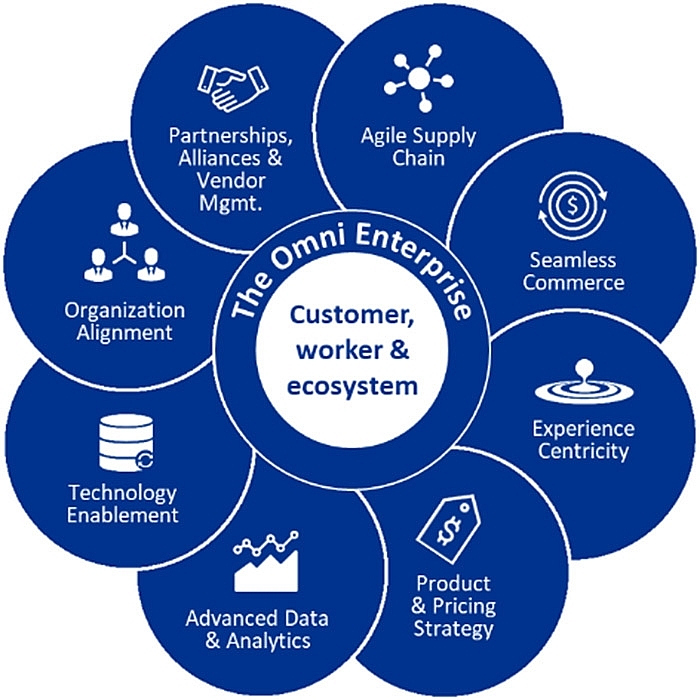Where to begin with your digital strategy
 |
| Will Nguyen, KPMG partner and head of IT Advisory |
It is universally accepted that digital disruption is very real and is interfering in every part of our lives. I no longer have to leave my house, get in a car, and drive to a restaurant for food. With just a few clicks on a mobile application, my favourite Bun Bo Hue can be delivered to my doorstep within 15 minutes.
The same phenomenon is disrupting the corporate world. Companies can leap frog competition by adopting emerging technologies into their business. Enterprise resource planning (ERP) is no longer a multi-million dollar investment. It is now a few hundreds of thousands of US dollars, and in some cases, less than that for a cloud-enabled ERP. Larger organisations do not have to spend millions of dollars on a security operating centre (SOC) and then more to operate and maintain it; there is now SOC-as-a-service available at fraction of the cost and with much better service quality.
On the flip side, digital disruption will introduce tremendous challenges to companies who choose to ignore the digital wave. These companies will likely remain static and disjointed while their competitors become more agile, more advanced and robust.
According to the 2018 KPMG CEO Outlook Survey, 95 per cent of CEOs interviewed see technological disruption as an opportunity and not a threat to their business. In the same survey, 71 per cent of CEOs said that they are eager and personally ready to incorporate the adoption of digital technology into their business vision in order to remain current and competitive.
 |
But for most, the question is HOW? There are six fundamental themes that companies should consider as they embark on their digital transformation.
- Omni enterprise: to deliver on ever-increasing consumer, worker, and ecosystem expectations for a true Omni experience. Organisations must take a holistic approach, addressing each of the eight key enablers.
- Digital labour: to maximise automation through emerging technologies such as Cognitive Automation or Robotic Process Automation in order to enable business automation and automate IT delivery.
- Journey to the cloud: to leverage emerging cloud platforms in order to maximise business solutions and technology options while minimising implementation effort and business disruption during deployment.
- Internet of services: to enhance experience and the level of effectiveness of everything by integrating external third party services instead of a do-it-yourself approach. An example can be made for the traditional recruitment process which now can be automated through matching candidates from a service provided by LinkedIn.
- Continuous delivery: to adopt a constantly moving culture in technology deployment where solution development/deployment function will need to adopt new approaches to allow continuous software delivery without business disruption
- Next generation IT operating model: to move to a new operating model is a fundamental shift in how the IT organisation thinks, acts, and delivers value to the business. It is about moving away from the traditional “run and maintain” model to a “create and innovate” model.
It is important to note again that it is no longer a question of should, but a decision as to how. What could have been a phenomenon of emerging technology yesterday is today’s necessity for survival. The Internet of Things, once a wonder of the world, is now the fundamental technology platform that is part of everyday life, from smart TV to smart watches and smart cars to smart everything.
What companies should realise is that in today’s environment, everyone should already have what we call the BASIC set of technologies (block chain, artificial intelligence, security, the Internet of things, and the cloud) as their fundamental digital enablers in order to operate effectively and competitively.
So, in summary, technology (five clicks on my phone) allows me to order my favourite food from my favorite restaurant, to have it paid for in a secure and cashless method and to have it delivered within just 15 minutes. This is only a small example of how digitisation is impacting our lives. Imagine the possibilities of what digital can do for any organisation that embraces change and, on the contrary, imagine what it will do to any organisation that chooses to ignore it.
At KPMG, we have a full digital consulting offering with end-to-end capability from strategy consulting, application development, and robotic process automation to ERP implementation, cybersecurity, and technology risk management. KPMG is committed to be the clear choice as your digital transformation partner.
For more information, you can contact KPMG: Will Nguyen at williamnguyen@kpmg.com.vn, or Phuc Nguyen at phuctnguyen@kpmg.com.vn.
What the stars mean:
★ Poor ★ ★ Promising ★★★ Good ★★★★ Very good ★★★★★ Exceptional
 Tag:
Tag:
Related Contents
Latest News
More News
- State corporations poised to drive 2026 growth (February 03, 2026 | 13:58)
- Why high-tech talent will define Vietnam’s growth (February 02, 2026 | 10:47)
- FMCG resilience amid varying storms (February 02, 2026 | 10:00)
- Customs reforms strengthen business confidence, support trade growth (February 01, 2026 | 08:20)
- Vietnam and US to launch sixth trade negotiation round (January 30, 2026 | 15:19)
- Digital publishing emerges as key growth driver in Vietnam (January 30, 2026 | 10:59)
- EVN signs key contract for Tri An hydropower expansion (January 30, 2026 | 10:57)
- Vietnam to lead trade growth in ASEAN (January 29, 2026 | 15:08)
- Carlsberg Vietnam delivers Lunar New Year support in central region (January 28, 2026 | 17:19)
- TikTok penalised $35,000 in Vietnam for consumer protection violations (January 28, 2026 | 17:15)






















 Mobile Version
Mobile Version